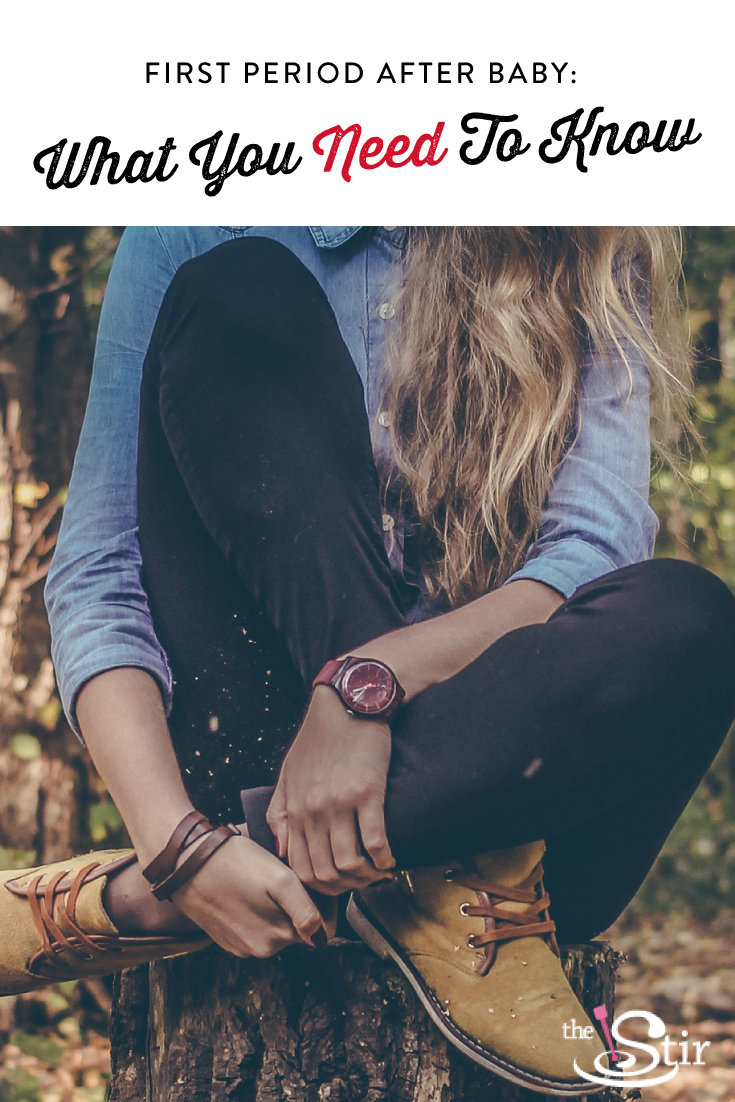One of the best things about being pregnant? Not having your period for nine months. And then baby arrives and — oh, look who's back. (Insert grumbling here.)
Just to make things more fun, your postpartum period will be a wee bit, uh, different, shall we say, than the old-school menstrual cycle you're used to having.
"What to expect for the first period after having a baby is a tough question to answer," admits Jason James, MD, a board-certified OB/GYN and medical director of FemCare in Miami, Florida. "There really is no true 'normal.'"

Here's what we mean:
Your period could come at any time. "When a new mom has her first period can vary from just a couple of weeks after birth to months or even years later," Dr. James explains. (The average, FYI, is 45 days after delivery.)
If you're exclusively breastfeeding, expect to be on the faraway end of that range. In fact, you might not get your period back until your child stops nursing altogether.
Your period may not look or feel like ones you've had in the past. It could be heavier than what you're used to. You might even see some clots. Or yours could be much lighter, Dr. James says. Some may last longer, too … or be shorter. In extremely non-scientific terms, anything goes.
If you're breastfeeding, your baby might notice you've gotten your period, too. Your milk supply may temporarily wane, and because of the hormonal shift in your body, your milk might taste differently.
More from The Stir: 5 Postpartum Warnings No One Wants to Give You
Don't expect regularity. Depending on whether you're breastfeeding or taking birth control that contain hormones (not all do), your period may not come and go like clockwork. In fact, you might notice your flow starts and stops.
"All bets are off when trying to predict what the first period [after baby] will be like," Dr. James says. "Expect the unexpected."
You can STILL get pregnant regardless of when your period starts. Surprise! You totally can. That's because ovulation happens BEFORE menstruation. "Some moms have been known to have a second child without ever having a true period after the first," adds Dr. James.
With that in mind, make sure to talk to your OB/GYN or midwife about birth control options and when to start them after delivery. Then, stash a few extra tampons in your diaper bag.
Image via © iStock.com/belchonok




